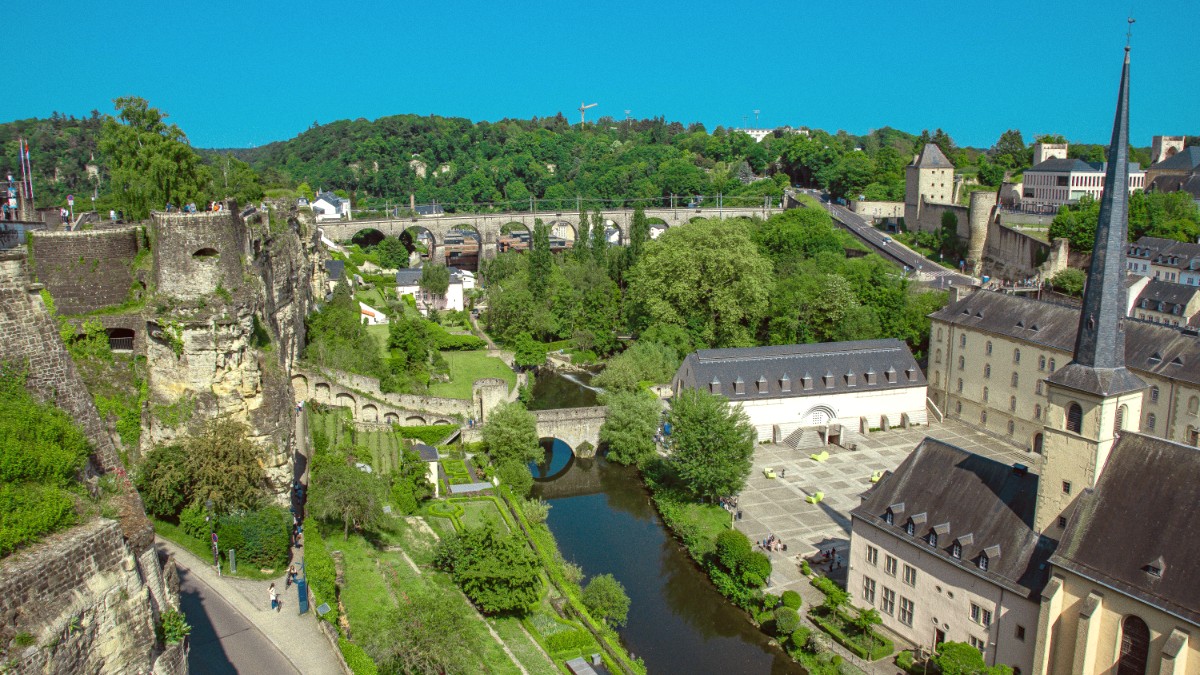
Luxembourg
Luxembourgish cuisine blends French fine dining and German comfort food influences, a result of its geographical location and historical ties.
Portuguese and Italian culinary traditions also play a role due to a significant international population. Traditional dishes are often hearty, comforting, and seasonal.
Lunch is typically 12:00 PM - 2:30 PM. Dinner begins 6:00 PM - 7:00 PM. Reservations are recommended for dinner, especially on weekends or for popular restaurants.
Tipping is not obligatory; service charge is usually included. Round up the bill or leave a small tip for good service. 5-10% for excellent service.
Three-course meals are common in formal restaurants. Casual dining options focus on single-dish meals or lighter fare.
Smoked pork collar with broad beans and potatoes, often considered the national dish.
Found in traditional Luxembourgish restaurants.
Thick green bean soup with potatoes and bacon, sometimes with Mettwurst.
A popular, warming dish for cooler weather.
Trout in Riesling sauce, highlighting local Moselle wines.
Found in restaurants with local or French-inspired cuisine.
Crispy, savory deep-fried potato fritters, a popular snack at markets and festivals.
Seasonal plum tart, and exquisite cakes/tarts from bakeries reflecting French influence.
Luxembourg City has a reputation for high-quality cuisine, including several Michelin-starred restaurants.
For a balance of quality and price, mid-range restaurants provide good options.
Affordable options include local markets, bakeries, and snack bars.
Luxembourg's multicultural population brings a wide variety of international cuisine.
Options include Italian, Portuguese, French, various Asian (Chinese, Japanese, Thai), and Middle Eastern restaurants.
This diversity ensures dining choices for every palate, from casual to formal.
Many restaurants cater to a global clientele.
Increasingly available, especially in larger restaurants. Online guides are helpful.
Many restaurants are aware. Communicate needs clearly. Translation cards may assist.
Limited, some options in diverse neighborhoods. Not widespread.
Very limited. Plan ahead or self-cater if strict dietary laws are followed.
Occasionally, special seasonal events or private functions happen within the historic Casemates.
Offers an unique dining atmosphere in underground tunnels.
Several restaurants offer stunning views of the city's valleys and the Alzette River.
Le Bouquet Garni or Le Sud offer a picturesque backdrop to your meal.
Schueberfouer (late Aug/early Sep) features traditional food stalls.
These events provide a glimpse into local traditions and community life.
Some local culinary schools or private chefs offer classes focusing on Luxembourgish cuisine.
Various local tour providers offer guided food tours exploring the city's culinary scene.
Opportunities exist in the Moselle wine region to visit vineyards for tastings and local products.
Luxembourg has three official languages: Luxembourgish, French, and German.
Some language schools offer short introductory courses for visitors.
Less prevalent in the capital, but common in rural areas.
Connects visitors with local crafts and farming practices.
World-class concert hall for classical, jazz, and world music performances.
Main theater hosting opera, ballet, drama, and contemporary dance.
Historic site in Grund for cultural events, concerts, and art exhibitions.
Check individual museum and tourist office websites for current exhibits and programming to tailor your cultural itinerary.